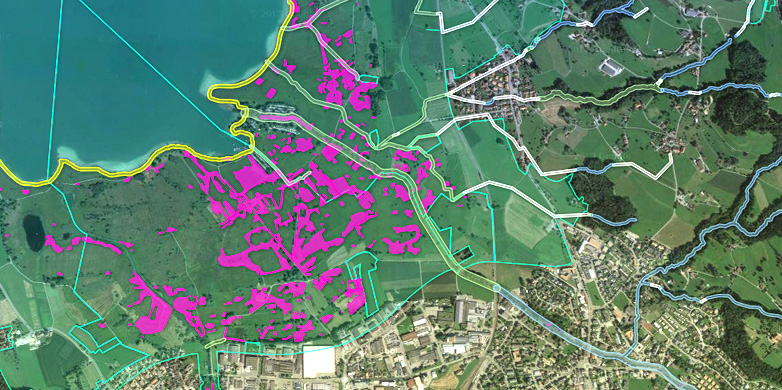PLUS – Planning of Landscape and Urban Systems
Currently, PLUS explores three strains of research:
- the use of cognitive psychological methods to better understand the fundamental interactions between landscape structures and human behavior. By recording physiological and cognitive responses to virtual landscape changes in the AudioVisual Lab using VR systems and the Mobile Visual-Acoustic Lab, we assess people’s landscape perceptions and their sense of place in various contexts.
- the development of participatory land-use decision models in for- and backcasting modes to identify landscape development pathways, allowing stakeholders to reach their desired goals. By developing the simulation models in collaboration with stakeholders, we incorporate several levels of information sophistication, ranging from expert judgements to field observations and quantitative simulations to engage in a learning process and develop more salient and legitimate landscape development solutions.
- the development of point cloud technologies to bridge landscape design and planning. The point clouds generated with laser-scanner technologies provide a common ground between architects, engineers, and scientists to develop informed landscape design. We investigate the use of such approaches in several contexts, from understanding the role of new renewable energy infrastructures in various landscapes in Switzerland to developing denser and greener cities in mega-cities across the world.
